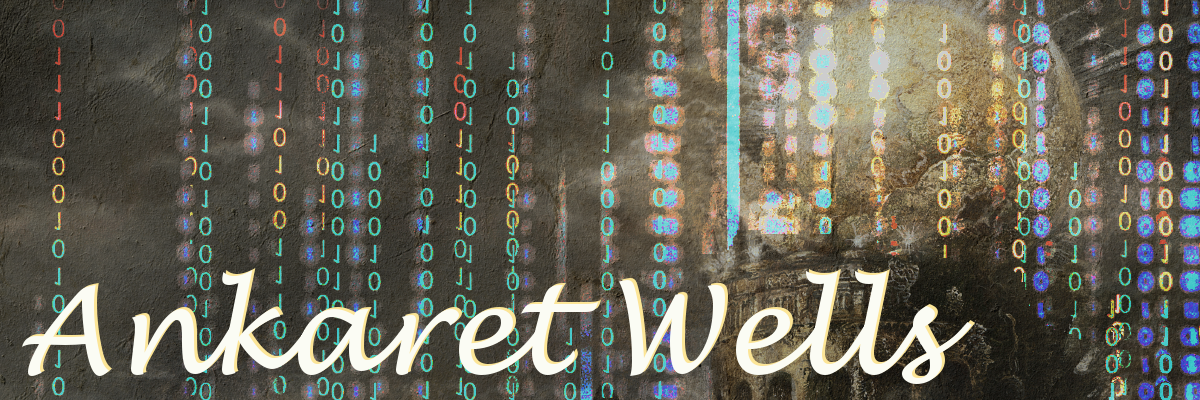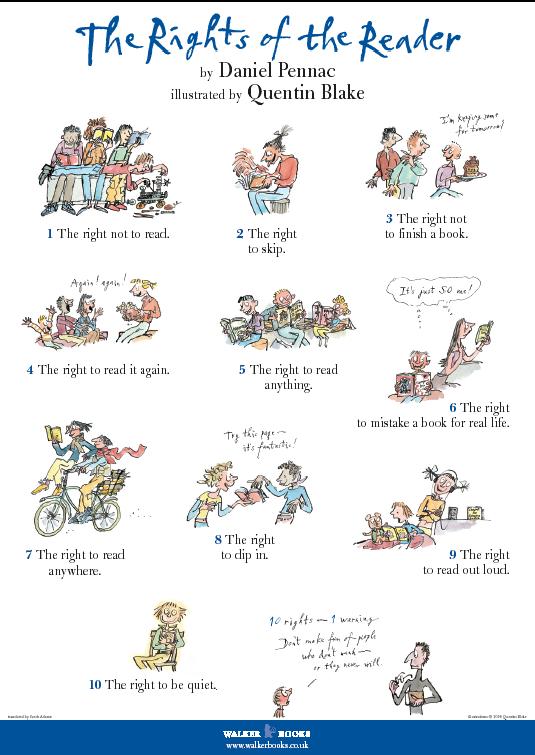A friend sent me a link to this great post about Daniel Pennac’s book The Rights Of The Reader. I wish I’d had this book and the poster that comes with it when I was nine, or even when I was nineteen. Heck, I’m thirty-nine and I’m still going to buy the book.
This is a small version: go here to download a large version of the poster. Rights 1 and 3 are why I’ve never joined a book group. 🙂
Talking of ways of reading, I quite often read a book fast the first time through because I have to know the characters will be OK at the end (if I’m really worried, I will flip to the final pages) and then read it again more slowly to enjoy all the details and feel immersed in the setting, and it gave me a small prickle of recognition when a friend first mentioned having done exactly that same thing with one of mine. I also read a blog post recently by another friend who mentioned a theory that books that are written very quickly don’t linger in the reader’s memory.
This made me think about whether the kind of reader a writer is makes a difference to what kind of book they produce. I think it must do, to some extent – for example, one thing Jane Austen and Enid Blyton have in common is that they’re extraordinarily easy to read aloud, because one author came from a culture of reading aloud in the family circle and the other read to children. And, of course, there are the romances and SF novels written by people who don’t customarily read romance or SF – which can be wonderfully fresh and give a new viewpoint, but quite often end up rehashing tired clichés that the author didn’t realise were clichés or causing the reader to think ‘But what kind of book is this?’ to the point that it distracts them from the actual book.
I do wonder whether it goes further – whether slow savourers of books write dense description, for example, or whether readers of erotica write sexier books. I wouldn’t be surprised if the first was true, but I’d be quite surprised if the second was.
What are your thoughts?


I think the second might be true: you get an idea of what works, for you, and for others, by what you read, if that makes sense?
I am wondering where “The right to read in peace without people coming up and going “That looks like a good book. Tell me about it!” is. And, indeed, the right to stab people who do that while you’re trying to have your break.
And then there are the people who a) ask “What’s it about?” and b) use it as a segue into “I read a really good book once”, and proceed to tell you about it, in excruciating detail, while you nod politely and long to get back to your book.
The right not to be told the ending before you get to it…… 🙂
Oh, yes, definitely this one! Even if someone’s reading, say, Vanity Fair, I think it’s always worth checking whether it’s a re-read or not before launching into spoilers in conversation.